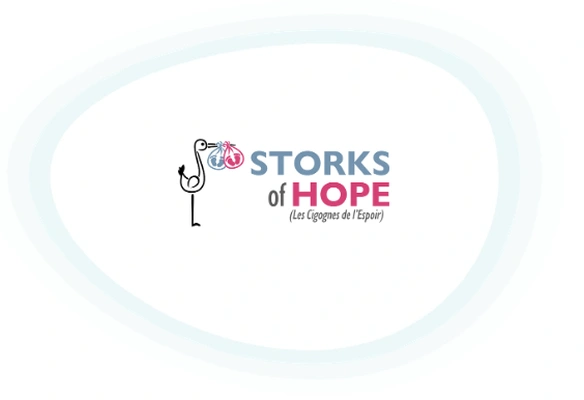Hormones are administered to increase the number of mature eggs available for freezing, allowing more eggs to be collected in a single cycle.
Egg freezing
Fertilité féminine et âge
A woman’s fertility naturally changes and evolves at different stages of life:
Between 20 and 30 years old: This is the most fertile period for women. During this age range, the chances of conceiving are at their highest, and most women who try to get pregnant succeed.
Between 30 and 35 years old: After the age of 30, fertility begins to gradually decline. However, many women are still able to conceive without major difficulties during this time.
Between 35 and 40 years old: After 35, fertility declines more rapidly. Although conception may take longer and require more attempts, there is still a good chance of becoming pregnant.
From 40 years old onwards: At this age, the monthly chance of natural conception is around 5%. Women may experience more difficulties in becoming pregnant.
Who is egg freezing for?
Egg freezing is suitable for various groups of women who wish to preserve their fertility for the future:
- Women who wish to delay motherhood for professional, educational, or personal reasons.
- Women undergoing cancer treatment or other intensive medical treatments that may affect fertility.
- Women with medical conditions requiring ovary removal but who wish to preserve the possibility of having children in the future.
How does egg freezing work?
The egg freezing process begins with a gynecological exam, blood tests, and hormonal preparation. Since every woman is unique, we take an individualized approach and provide personalized monitoring throughout the process.
First meeting with the doctor to get acquainted with the clinic.
You will receive detailed information about the entire process and have the opportunity to ask any questions you may have.
Health assessments are carried out to evaluate your overall condition and to plan a personalized treatment protocol tailored to your specific needs.
Ultrasound scans are performed during hormonal stimulation to monitor the development of the eggs and determine the optimal time for retrieval.
Performed transvaginally under short general anesthesia. You can leave the clinic a few hours after the procedure.
The collected eggs are frozen using the vitrification method and stored at our clinic until you are ready to start a family.
Egg freezing gives women the freedom to plan their future on their own terms, preserving the possibility of having children at the time that’s right for them.
Partnership with Storks of Hope (Les Cigognes de l’Espoir)
The SANUS clinic is proud to be a partner of the association supporting people facing infertility, Storks of Hope (Les Cigognes de l’Espoir).
The SANUS clinic and the Storks of hope association share the same philosophy: to provide you with personalized, compassionate, and high-quality support to help you achieve your dream of starting a family.
This partnership aims to offer you easier access to our fertility treatments, including preferential rates.
At SANUS, we are by your side every step of the way on your journey to parenthood.

FAQ: Frequently Asked Questions About Egg Freezing
What is the ideal time to freeze your eggs?
The ideal time is between the ages of 30 and 35, when egg quality is still optimal and fertility has not yet begun to decline significantly. However, freezing earlier—between 25 and 30—can offer even better chances, especially for women who are certain they want to preserve their fertility for the future.
Can egg retrieval affect my ovarian reserve?
Egg retrieval generally does not have a significant impact on ovarian reserve. During hormonal stimulation, the eggs that would naturally be lost in that cycle are simply recruited and collected, meaning the overall egg supply is not affected.
Are there any risks associated with social egg freezing?
Social egg freezing is generally considered a safe procedure. However, like any medical intervention, it carries certain risks, particularly related to hormonal stimulation and the egg retrieval process.
What is the success rate of egg freezing?
The success rate depends on several factors, including the woman’s age at the time of retrieval, the quality of the eggs, and the laboratory techniques used. In general, the younger a woman is at the time of freezing, the higher the chances of successful thawing and fertilization.
What if I never use my frozen eggs?
If you never use your frozen eggs, you have several options:
-
Donate them to another couple
-
Make them available for scientific research
-
Request their destruction